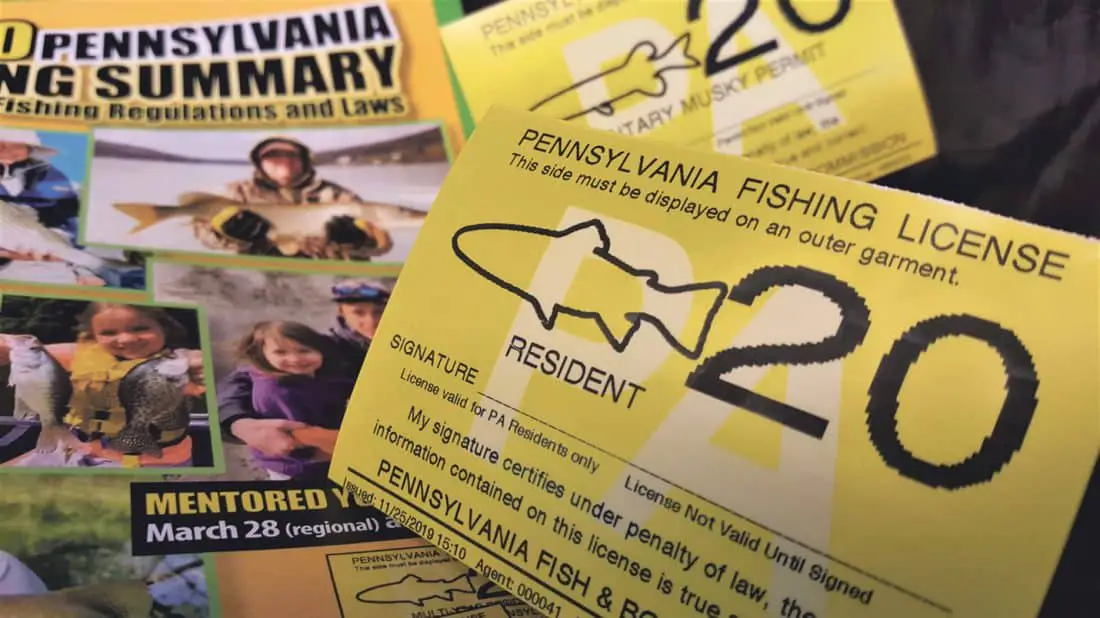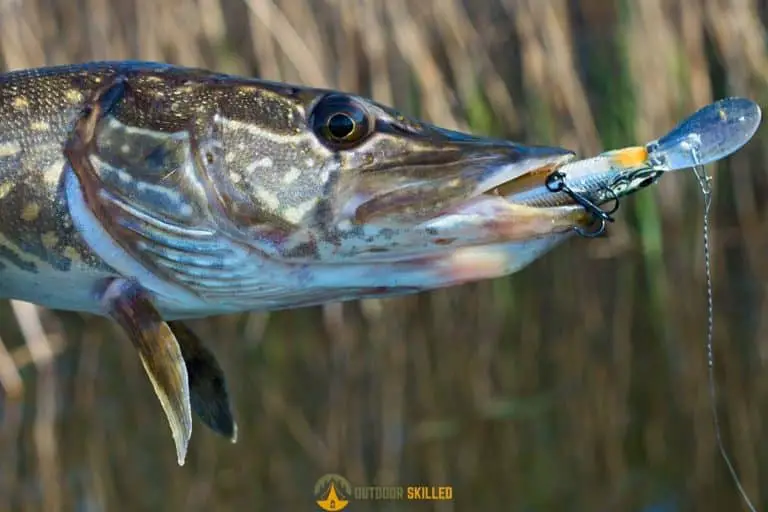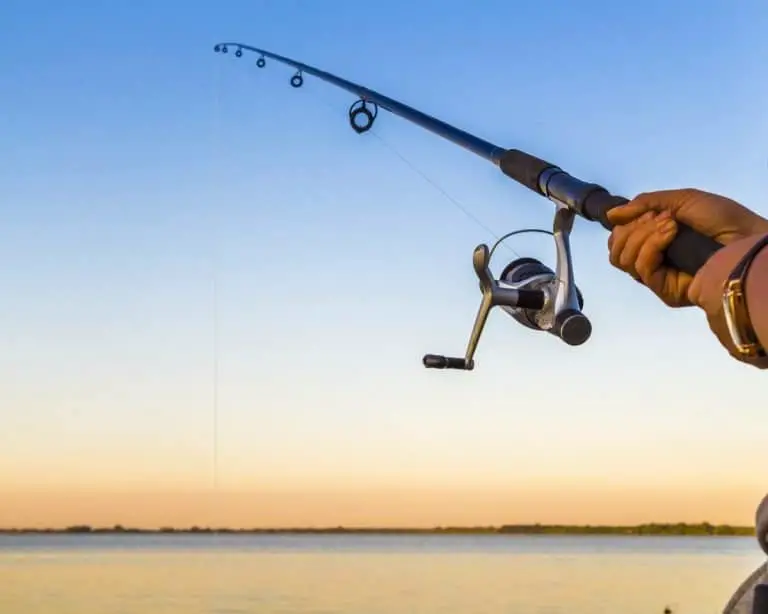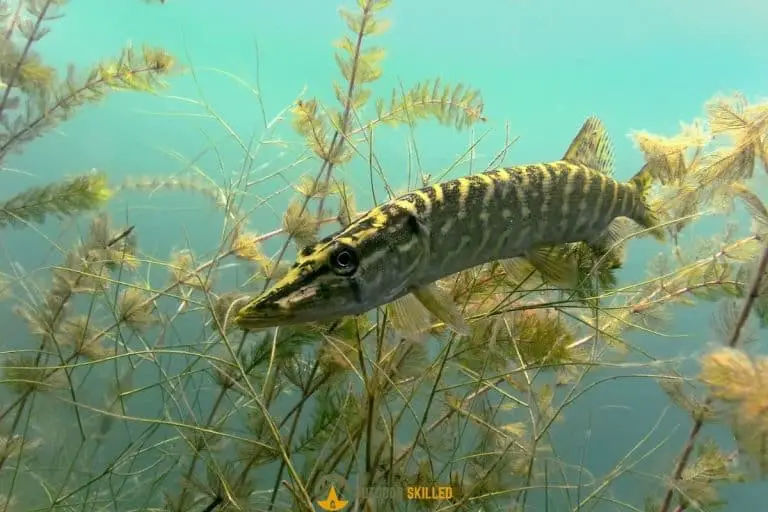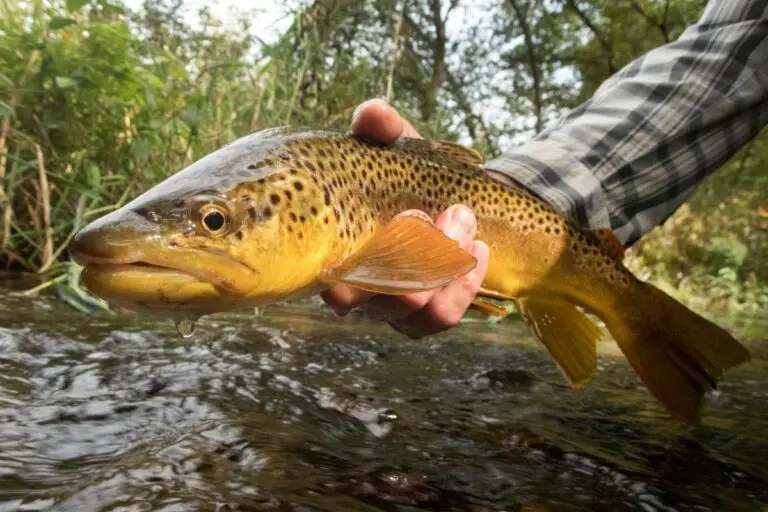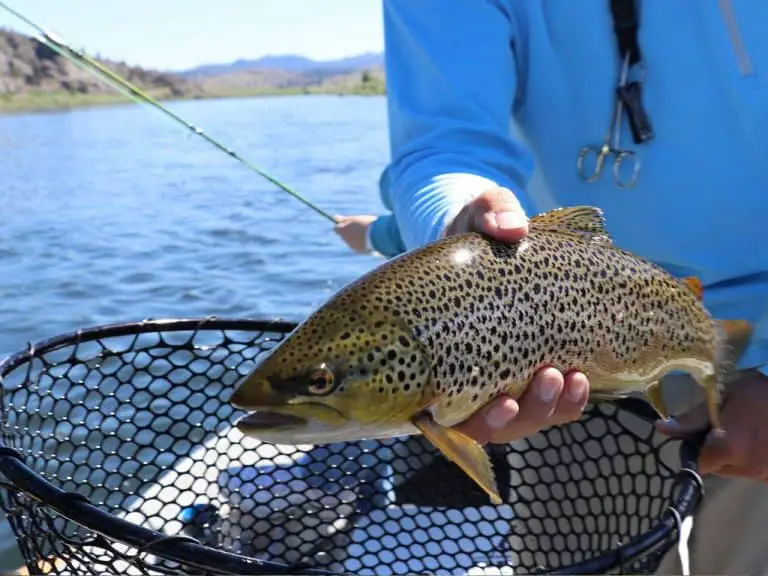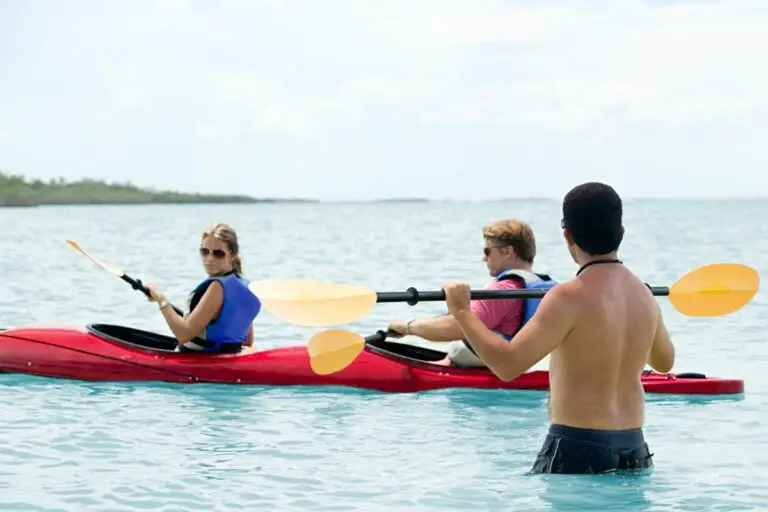How Much Is a Fishing License? All States (& Canada) [2024 Updates!]
In several states, prime fishing season is coming, and anglers are preparing to hook their preferred fish while others are trying to find out how to legally get on a boat for the first time.
If you are among the above, you might be curious about the costs and conditions of owning one. So, how much is a fishing license? No worries! I’ve got you covered.
The cost of a fishing license ranges from state to state. An annual state resident fishing license costs around $25 on average, while non-resident licenses pay $60 to $70. Whatever you pay for a license, it would be less than the fine for not getting one.
Here’s a list of updated fishing license prices for every state in 2024:
| State | Annual Resident | Annual Non-Resident | Temporary License |
|---|---|---|---|
| Alabama | Saltwater: $24.75 Freshwater: $14.05 | Saltwater: $53.10 Freshwater: $54.20 | 7-day trip: $10.15 |
| Alaska | $20.00 | $100.00 | ——- |
| Arizona | $37.00 | $55.00 | ——- |
| Arkansas | $22.50 with a trout stamp | $70.00 with a trout stamp | ——- |
| California | $52.66 | $142.50 | ——- |
| Colorado | $36.08 | $100.57 | ——- |
| Connecticut | $32.00 | $63.00 | 1-day: $3 |
| Delaware | $12.70 | $26.20 | ——- |
| Florida | Saltwater: $17.00 Freshwater: $17.00 Combo: $32.50 | Saltwater: $47.00 Freshwater: $47.00 | ——- |
| Georgia | $15.00 | $50.00 | ——- |
| Hawaii | $5.00 | $25.00 | ——- |
| Idaho | $30.50 | $98.25 | 15-day: $13.50 |
| Illinois | $15.00 | $31.50 | 1-day: $5.50 |
| Indiana | $17.00 | $35.00 | 1-day: $9 |
| Iowa | $22.00 | $48.00 | 7-day: $15.50 |
| Kansas | $27.50 | $52.50 | 1-day: $8.50 |
| Kentucky | $23.00 | $55.00 | 1-day: $7 |
| Louisiana | Saltwater: $13.00 Freshwater: $9.50 | Saltwater: $60.00 Freshwater: $30.00 | ——- |
| Maine | $25.00 | $64.00 | 1-day: $11 |
| Maryland | Saltwater: $15.00 Freshwater (+trout): $25.50 | Saltwater: $22.50 Freshwater (+trout): $40.50 | 7-day: $7.50 |
| Massachusetts | Saltwater: $10.00 Freshwater: $27.50 | Saltwater: $10.00 Freshwater: $37.50 | 3-day: $12.50 |
| Michigan | $26.00 | $76.00 | ——- |
| Minnesota | $25.00 | $51.00 | 1-day: $12 3-day: $14 |
| Mississippi | Saltwater: $12.29 Freshwater: $12.29 | Saltwater: $34.29 Freshwater: $64.29 | 3-day: $3 |
| Missouri | $12.00 | $49.00 | 1-day$7 |
| Montana | $31.00 | $103.50 | 2-day and more: $15 |
| Nebraska | $38.00 | $84.00 | 1-day: $10 3-day: $31 |
| Nevada | $40.00 | $80.00 | 1-day: $9 |
| New Hampshire | Saltwater: $11.00 Freshwater: $45.00 | Saltwater: $11.00 Freshwater: $63.00 | 1-day: $10 |
| New Jersey | $33.00 with a trout stamp | $54.00 with a trout stamp | ——- |
| New Mexico | $25.00 | $56.00 | 5-day: $24 |
| New York | $25.00 | $50.00 | 1-day: $5 |
| North Carolina | Saltwater: $16.00 Freshwater: $25.00 | Saltwater: $32.00 Freshwater: $45.00 | 10-day: $6 |
| North Dakota | $18.00 | $48.00 | ——- |
| Ohio | $25.00 | $50.96 | 1-day: $14 |
| Oklahoma | $25.00 | $55.00 | 2-day: $15 |
| Oregon | $44.00 | $110.50 | 3-day: $59.50 |
| Pennsylvania | $32.94 with a trout stamp | $62.94 with a trout stamp | ——- |
| Rhode Island | $23.50 with a trout stamp | $40.50 with a trout stamp | ——- |
| South Carolina | Saltwater: $10.00 Freshwater: $10.00 | Saltwater: $35.00 Freshwater: $35.00 | 14-day: $5 |
| South Dakota | $28.00 | $67.00 | 1-day: $8 |
| Tennessee | $56.00 with a trout stamp | $50.00 ($99 with trout stamp) | 1-day: $11.50 |
| Texas | Freshwater: $30.00 Saltwater: $35.00 Combo: $40.00 | Freshwater: $58.00 Saltwater: $63.00 Combo: $68.00 | 1-day: $11 |
| Utah | $34.00 | $85.00 | 3-day: $16 |
| Vermont | $28.00 | $54.00 | 3-day: $11.00 |
| Virginia | Saltwater: $17.50 Freshwater: $23.00 Combo: $39.50 | Saltwater: $25.00 Freshwater: $47.00 Combo: $71.00 | 5-day: $24 10-day: $10 |
| Washington | Saltwater: $30.05 Freshwater: $29.50 Combo: $55.35 | Saltwater: $59.75 Freshwater: $84.50 Combo: $124.65 | ——- |
| West Virginia | $29.00 with a trout stamp | $53.00 with a trout stamp | ——- |
| Wisconsin | $30.00 with a trout stamp | $60.00 with a trout stamp | ——- |
| Wyoming | $27.00 | $102.00 | 1-day: $6 |
Would you like a copy of that table? You can download the PDF version of it below.
Table of Contents
What Is A Fishing License?
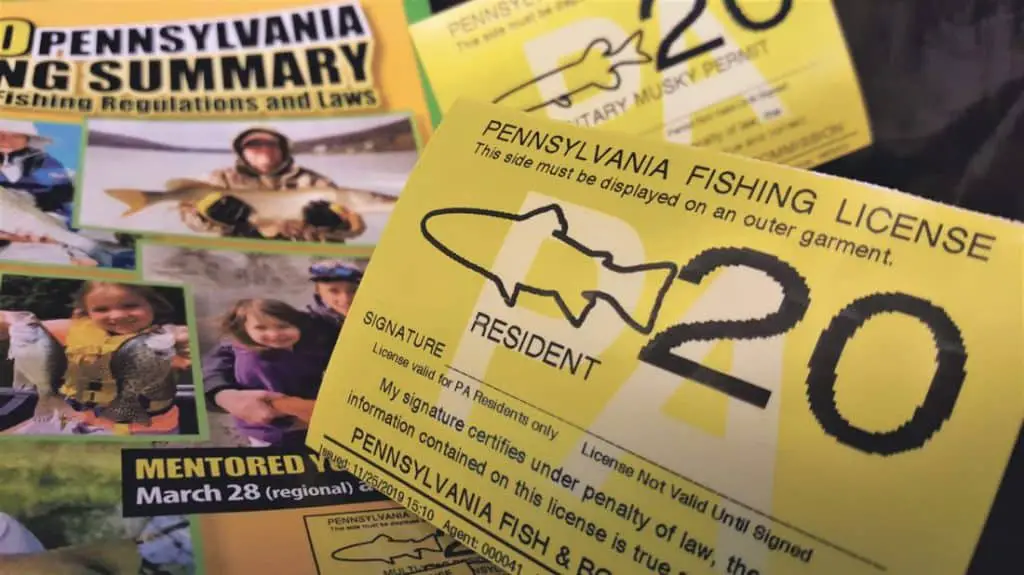
A fishing license is a legal document that you need to be allowed on the state waters to engage in any kind of fishing activity. It’s required for either commercial or recreational fishing.
You can get your license online or from official governmental buildings that provide them. They’re at the same price, and the online purchase is secured and monitored by the government.
It’s illegal to fish without one except for specific cases mentioned in every state’s regulations. You should NOT fish without a license if the state requires one. You can learn what happens when you fish without a license here.
Purchasing a valid fishing license that suits the water body you’re fishing in, as well as the number of days you’re expected to fish for, is an essential first step to ensuring a safe, legal, and enjoyable fishing season.
Types of Fishing licenses
There are different types of licenses according to which water body you’re fishing in or the amount of time it’s valid. For instance, a license can be for saltwater, freshwater, and a combination of both. It can also be long-term, such as the annual license, or short term such as one-day or ten-day ones.
Let’s take a look at different types of fishing licenses in more detail:
Saltwater license
This allows you to fish in saltwater areas only. States charge saltwater licenses differently than freshwater ones. It’s illegal to use this one in freshwater, or else you’ll face charges.
Freshwater license
Allows you to fish in freshwater areas only. You’ll face charges if you get caught using it on a saltwater body.
Combo license
This is for anglers who like to fish in both saltwater and freshwater. Not all states offer this special package, such as Texas, Virginia, and Washington.
It’s more expensive than other types but can save you some bucks if you’re fishing in a state with both types of water bodies.
Long term license
This license type is purchased annually. It’s valid from January 1st through December 31st or for the remainder of the year if purchased after January 1st.
An annual fishing license is the most popular form of license sold and is often the most cost-effective way to spend the whole year on the water.
Short term license
It is also known as a temporary license. It’s ideal for people who just go out on the water a few times a year. It can be for a single day, three days, or ten days.
There are other varieties, such as a 15-day or 7-day license, but they’re not common in all states. Non-residents tend to choose the ten-day type, which allows them to fish for ten consecutive days beginning on a date established at the time of purchase.
The majority of temporary licenses cost less than $30 for non-residents and less than $20 for state residents.
How to Get A Fishing License?
You can get a fishing license online from your state’s fish and wildlife official website. This is the only secure and safe place to buy a license of any type online since other websites are not authorized to complete such a process.
The process is easy and quick. You can safely get a valid license of any type that suits you and use it the next time you get on the water. Don’t think you’re saving time or money by not buying a proper fishing license; you’re probably getting yourself into trouble. Visit The U.S. Fish and Wildlife Services to apply for a license online.
The website lets you choose your state, then opens the official website of the state. The procedure then differs from one state to another, but you’ll mostly create an account with your correct personal information and payment method, choose the license type you want, and confirm the purchase. You can keep the license in its digital form or print it at home.
Where Can You Get Your Fishing License?
You can get your fishing license online or in person. You can register on your official state website and continue the purchase online. You can also get one in person; head to the nearest TPWD office, hardware store, tackle shop, weapons shop, or grocery store throughout the state.
It’s much easier to get your license online within a few minutes. If you don’t prefer online purchasing, even though the official state’s websites are totally safe, secure, and monitored by the government, you can get a valid license from any store that has the authority to sell one.
How Old Do You Need to Be to Need A Fishing License?
You need to be 15 or older to need a fishing license. The minimum age varies from one state to another, and so is the regulation of this state. In some states, like Massachusetts, residents are allowed to have a free license from the age of 15 to 17.
How Much Is A Fishing License in the US?
Every state sets its price for fishing licenses for public water bodies. On average, an annual state resident fishing license costs around $25, while non-resident licenses cost $60 to $70. Keep in mind that whatever you pay for a license will be cheaper than the fine you’ll pay for not having one.
If you are not someone who goes fishing on a regular basis, you can save money by purchasing a 15-day, 7-day, 3-day, or 1-day fishing license. The price varies according to the state in which you fish.
Please keep in mind that a license issued in one state may not be honored in another unless they share the same body of water. For example, if you have a Virginia saltwater fishing license, it would be honored in Maryland, but that doesn’t apply to states that have no common water body.
That’s why it is crucial first to understand the limitations of your license and review the rules and regulations before you plan your fishing trip not to turn into trouble you don’t need.
Are Fishing Licenses Free at Walmart?
Fishing licenses are not free at Walmart. You pay the same amount of money you do when you buy it from a government building or online. Expect to pay between $11 and $40, depending on the state, the age, and the length of validity of the license.
Why Do You Need a Fishing License?
You need a fishing license because the DWR uses it to regulate the fishing activities on different water bodies, set limits to species you can catch, identify poachers and abusers, and fund the research from the fees raised.
When states create their fishing rules, they usually set restrictions on the species and the number of fish that any particular angler will catch and keep in a day. These restrictions are included in the information that comes with fishing licenses, so people are more aware of their catch limits.
Having a fishing license is beneficial to far more extent than most people know. It’s not only about knowing the limits of catching or the allowed species to catch; it genuinely makes your fishing experience a much better one in the long run. How? Let’s get into it.
Identifying poachers
Fishing licenses allow state and federal wildlife authorities to detect poachers who unlawfully hunt and damage wildlife. Officials can recognize them more easily if they spot-check anglers for legitimate fishing licenses and stop any angler who doesn’t have a license from fishing.
Management purposes
Having a fishing license also makes it easier for wildlife and natural resources departments to set size and number limits and accurately plan fishing seasons based on data generated by license analysis. This reason is the most common and important one that people should be aware of.
This is important for the survival of the fish population and enables you to catch a fish even if you’re going to release it.
Funding
License fees are raised by state wildlife authorities and used to finance wildlife studies and other conservation activities. Funding involves the preservation of safe fisheries for fish spawning grounds, as well as the stocking of public lakes, which aids in the stabilization of fish stocks and assures that your next fishing trip is profitable.
Who Doesn’t Need a Fishing License?
You don’t need a fishing license if you’re a person under 16 (or 15 in some states), a 65 or older resident of Florida, a disabled veteran, or military personnel on active or reserve duties, as well as immediate family members and assistants, as well as the partially or totally disabled in some states.
Categories that are exempt from a valid fishing license vary from one state to another as well. It’s mostly related to age, disability, or military membership. If you’re under 16 or over 65 years old, you may want to check your state regulations and hit the water the next day without a license. Florida also doesn’t ask their permanently disabled anglers to have a license; the same goes for military personnel.
If you are on a boat with a child showing them how to fish, you do not need to purchase a license for yourself, but you may need a license for the child, which can be discounted or free in certain states. Anglers who fish in privately owned bodies of water in Texas are not required to get a state fishing license. Oklahoma residents 65 and over don’t require a license to fish in Texas.
What Is A Canada Sport Fishing License?
A Canada sport fishing license is a type of license for anglers who want full catch and possession fishing privileges. It’s one of two types of fishing licenses Ontario offers for anglers. The other one is the Conservation one with reduced privileges.
The sports fishing license allows for unlimited catch and possession, while the conservation license allows for a restricted catch and possession limit, which is suitable for anglers who want to release the majority of the fish they catch.
Here’s a list of both types and their prices in 2024:
| Residence | Sport License Price | Conservation License Price |
| Ontario | three-year fishing license ($79.71) | three-year fishing license ($45.21) |
| one-year fishing license ($26.57) | one-year fishing license ($15.07) | |
| one-day fishing license ($12.21) | – | |
| Canada | three-year fishing license ($164.43) | three-year fishing license ($98.79) |
| one-year fishing license ($54.81) | one-year fishing license ($32.93) | |
| one-day fishing license ($14.96) | – | |
| Non-Canadian | three-year fishing license ($245.07) | three-year fishing license ($155.13) |
| one-year fishing license ($81.69) | one-year fishing license ($51.71) | |
| eight-day fishing license($53.38) | eight-day fishing license ($31.02) | |
| one-day fishing license ($24.36) | – |
If you are going fishing or kayaking outside of the US and Canada, you need to research the rules of the country well beforehand. A popular spot for fishermen and kayakers is Singapore, which I’ve enjoyed quite a lot.
You can learn about fishing and kayaking in Singapore in this guide.
What Happens If You Get Caught Without A Fishing License?
If you get caught without a valid fishing license you can face charges depending on the regulations of the state, plus the price of a one-day license. You can face some jail time if you don’t pay the penalty, or you can be prohibited from fishing ever again.
The situation of being caught fishing without a valid license varies depending on the state you’re fishing in, past convictions, and the cop who stops you. The best-case scenario will be to receive a warning or to be instructed to leave the water instantly and never return until you have obtained a valid license.
If this is your first violation, the state can impose a minor fine, which is usually about $50 plus the cost of a 24-hour license. If you have fish on the boat, the price you pay will be increased. You must pay the fine within the next 30 days or face another fine and perhaps some jail time.
Fishing Essentials and Gifts!
- Out of ideas? Here are 50 Creative Fishing Gifts for the angler in your life that already has everything
- The ultimate list of Fishermen wear for every weather condition
- The Best Luxury Fishing Gifts That won’t cost a fortune and will still impress – even the richest – friends
- The Best Budget fishing gifts that seem way more expensive than they actually are
If you like this article, please share it or pin it, you can find the share buttons below. We will really appreciate it ❤️

